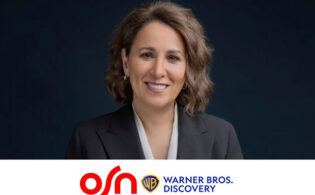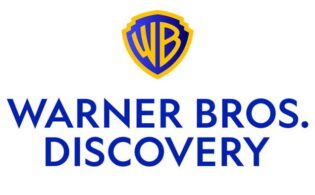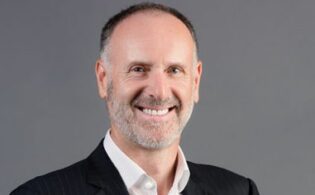Long-running Turkish series, blue-sky dramas and animated features are among the priorities on Andy Grant’s wish list at OSN+. The VP of programming strategy at the streaming service in the Middle East and North Africa—owned by the region’s leading pay-TV operator—took time out of his busy screenings schedule in Los Angeles this week to talk to World Screen Weekly about OSN+’s positioning, navigating the evolving strategies at the Hollywood studios and finding shows that will drive subscriber acquisition and retention.
 WS: What’s your overall programming strategy at OSN+?
WS: What’s your overall programming strategy at OSN+?
GRANT: We are the home of Western content for the Middle East and North Africa, whether it’s movies or top-flight series. We are the home of quality for fans of Western content. We try to ensure everyone in the household has something, so we underpin that with Arabic content. We do make our own originals in Arabic. We also buy long-running Turkish series; they’re super popular in the Middle East. And then we’ve got a very good kids’ selection. We’re Western-oriented, but we’re very much a comprehensive service that offers everyone in the home something.
WS: What kinds of shows drive subscriber acquisition versus those that serve as retention tools?
GRANT: These are inevitably the big noisy shows. In the last year or so, the two big ones have been House of the Dragon and The Last of Us from HBO. They’re big budget. There’s an opportunity for them to continue after the first season. They have the talent. They’re the sorts of shows you could easily imagine on the big billboards. These are the ones that attract people’s attention, and they are exclusive on OSN+, which means people have to subscribe to get them. And then, of course, the job is keeping subscribers with a regular throughput of quality content and messaging so they know that each week or each month, there’s going to be something they can try out.
WS: The approach to licensing content at the Hollywood studios has been in flux as they roll out their own D2C services. Has that impacted your acquisition strategy?
GRANT: It has. For instance, Disney+ is in the Middle East. We formerly were the home of Disney. HBO is not coming to this part of the world at the moment, so there’s regular licensing there. The withdrawal of a certain amount of content is apparent. We don’t have quite the same level of choice that we would have had before. But we are the leading Western service in the region, so we are the first port of call for all of the studios when they are making their sales.
WS: You mentioned Turkish content. They have been experimenting with shorter-run series. What are you looking for out of that market?
GRANT: We’re still looking for the longer ones. They can get a very loyal viewership that keeps coming back again and again. Our most popular show is Forbidden Fruit. That’s on its sixth season. It runs to 100-plus episodes each season. That’s powerful for us on engagement. It means that a significant chunk of our viewership visits three, four or five times a week to catch up with the show. We drop three or four episodes at a time each week. In the week, it plays out on our linear channels, and then when we drop them on OSN+, they get consumed quickly.
WS: And are you also acquiring Arabic-language content from the region in addition to your originals?
GRANT: Yes, from Kuwait, from Saudi Arabia, where possible. Kuwait is quite active in making drama series. And also Egypt, of course, for movies especially. And Lebanon, too. In general, we are looking at all the major markets.
WS: There’s a large South Asian diaspora population across the region. Are you looking at content from India or elsewhere in that region?
GRANT: We haven’t. Never say never, but we would have to go to town on creating a lineup that would be rich and deep and up-to-date. I don’t know if we want to do that commercially because there is quite a lot of competition in the market. The amount of volume we would need to have to make it a worthwhile product is a very large investment. Our core USP is Western content. There is a large expat population in the region, but we haven’t gone there yet.
WS: How important is exclusivity? Does everything have to be first-run?
GRANT: There has to be a significant amount of exclusive content. What is the point of somebody subscribing to you if they can get it elsewhere? You’re then competing on technical ability or price. There needs to be hype; there needs to be a significant number of high-profile exclusive titles, whether it’s movies or series. After that, we do take second runs of movies and series. On the library side of things, it’s non-exclusive. For instance, we will have [the U.S. version of] The Office next week. It’ll do pretty well, but it’s on three or four other services. It’s having those layers in the content offering, but exclusivity is still very important.
WS: Do you find some shows play better in a linear environment than a streaming one?
GRANT: A procedural like Chicago Fire has a small audience on streaming, whereas it does pretty well on the linear channels. A crime miniseries like a Mare of Easttown does well on streaming and linear. Movies are also successful on linear; they are not quite as important to us on the streaming service. The movies tend to perform well initially and then fall away quite rapidly, whereas the series tend to tick along regularly.
WS: Samba TV issued a report recently on streaming launch strategies. How have you been approaching those decisions about full-season drops versus week-to-week?
GRANT: We drop a lot of shows on a weekly basis because we follow HBO. The Sunday night slot is very important to HBO. So on Monday morning, we would be releasing those episodes at the same time as they are. You can see how a show builds over that period. We also drop series as boxsets. For instance, The Flight Attendant was launched as a boxset. I’m torn as to whether you do a mini drop of two or three episodes and then go weekly after that or go all at once. I don’t think the data is absolutely clear as to what is the best one to do.
WS: What’s on your wish list as we head into the busy markets season leading up to MIPCOM?
GRANT: We’ve got a pretty good roadmap, courtesy of the partners that we have, spearheaded by HBO, but also Warner Bros. Discovery, NBCUniversal and so on. What we’re looking for—and they’re quite hard to find, although there’s been a few this week—is a light-touch drama. That is on the priority list for us.
WS: And what about for your kids’ lineup?
GRANT: I can’t stress how important it is in the MENA region to have a good kids’ product. We’re looking for the big, long-running series. Nickelodeon does a good job of that. Things like The Loud House and SpongeBob SquarePants continually do well. And also, we always ensure we’ve got a good selection of animated movies, at least 30 or so. They do get regular rewatching.



